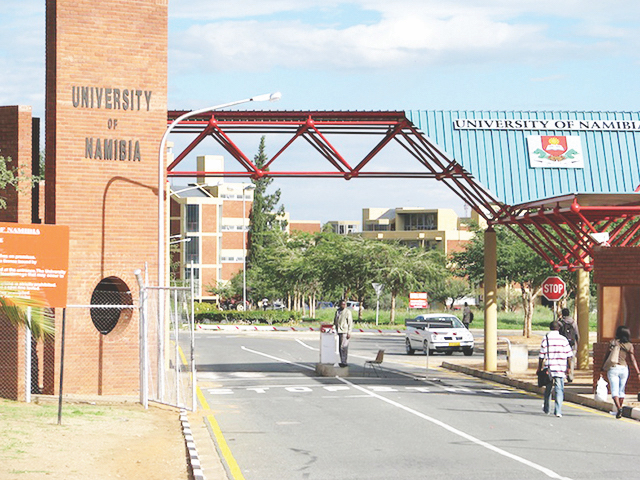EMPLOYEES of the University of Namibia (Unam) are disgruntled with vice chancellor Kenneth Matengu’s plan to cut costs at the institution.
This includes eight faculties being cut down to four, and restructuring the university’s top management structure.
Unam has already closed its 10 regional centres, which comprise Tsumeb, Khorixas, Swakopmund, Otjiwarongo, Keetmanshoop, Gobabis, Oshakati, Rundu, Katima Mulilo and Eenhana, and replaced them with online academic support.
The university last Wednesday announced it will function online only for this year’s first semester due to the Covid-19 pandemic.
When Matengu was appointed in 2018, he promised to make sure the university’s N$2,6 billion asset base would be transformed from being liabilities to generating revenue.
A university source yesterday revealed the institution needs about N$2,3 billion to survive annually.
This includes its wage bill of between N$900 million and N$1 billion.
In the 2020/21 financial year, Unam was allocated N$900,2 million, which involved 5,1% of the Ministry of Higher Education, Training and Innovation’s total allocation.
A group of dissatisfied university employees has written an open letter about the planned restructuring and shared it with The Namibian.
They say Unam is to blame for its financial woes, attributing it to the management’s bloated salaries, poor collection of student fees, and low tuition fees.
“Sadly, this exponential growth in numbers has not seen a corresponding growth in systems and efficiencies, which has caused maladministration and the growth of students’ discontent over the years,” the letter reads.
Despite denying maladministration at the university, Unam spokesperson John Haufiku yesterday said the rapid growth in the number of students has various significant implications for its “systems, processes, infrastructure and staff complement … “.
The university had 19 000 students in 2014, and currently has 30 000.
Haufiku was, however, adamant that no employee would be lost, but said contract workers would not return after their contracts expire.
“When new projects become available, consultants are either rehired according to their skills and availability, or services are assigned to a relevant faculty. There have not been job losses to any of our permanently employed staff. The relocation of services from Unam’s regional centres has caused the redeployment of staff to the nearest campus,” he said.
Haufiku said pro-vice chancellors will now become directors of the university’s various campuses.
In the letter, the employees claim Matengu’s cost-cutting exercise is to protect his salary.
“This large salary may well be the reason Matengu’s administration is adamant about various cost-cutting measures that have left some staff members grossly unhappy,” it states.
Matengu, when contacted for comment, did not respond to questions related to his salary.
Haufiku said employees’ salaries are in line with their qualifications and skills, but said staff at management level are paid less than at other universities.
“To keep these firebrands interested in the training and tutelage of future generations, we must remunerate them competitively. Otherwise, they may be tempted to seek employment elsewhere.
The university’s human capital department remains committed to making sure that staff are paid competitive salaries so that staff turnover is kept low,” he said.
Haufiku said the university is raising funds through local projects and international grants.
“Though still at the initial stages, significant strides made so far prove that the university will be able to continue raising funds from external entities to supplement the good efforts made by the Namibian government,” he said.
The university has generated income through its sanitiser production at its Hage Geingob campus, Covid-19 testing and water-bottle manufacturing at its Sam Nujoma campus.
It has also received grants through the Deutsche Gesellschaft für Internationale Zusammenarbeit (GIZ) and the Welsh government.
Stay informed with The Namibian – your source for credible journalism. Get in-depth reporting and opinions for
only N$85 a month. Invest in journalism, invest in democracy –
Subscribe Now!










